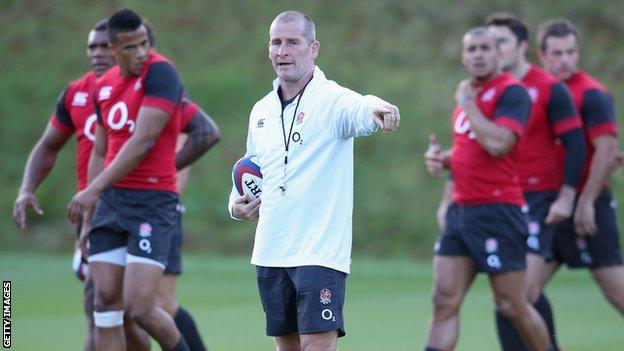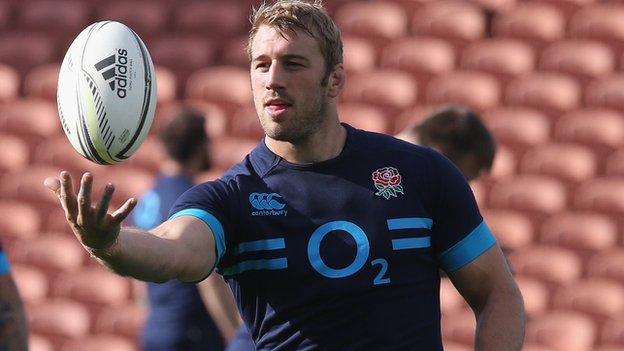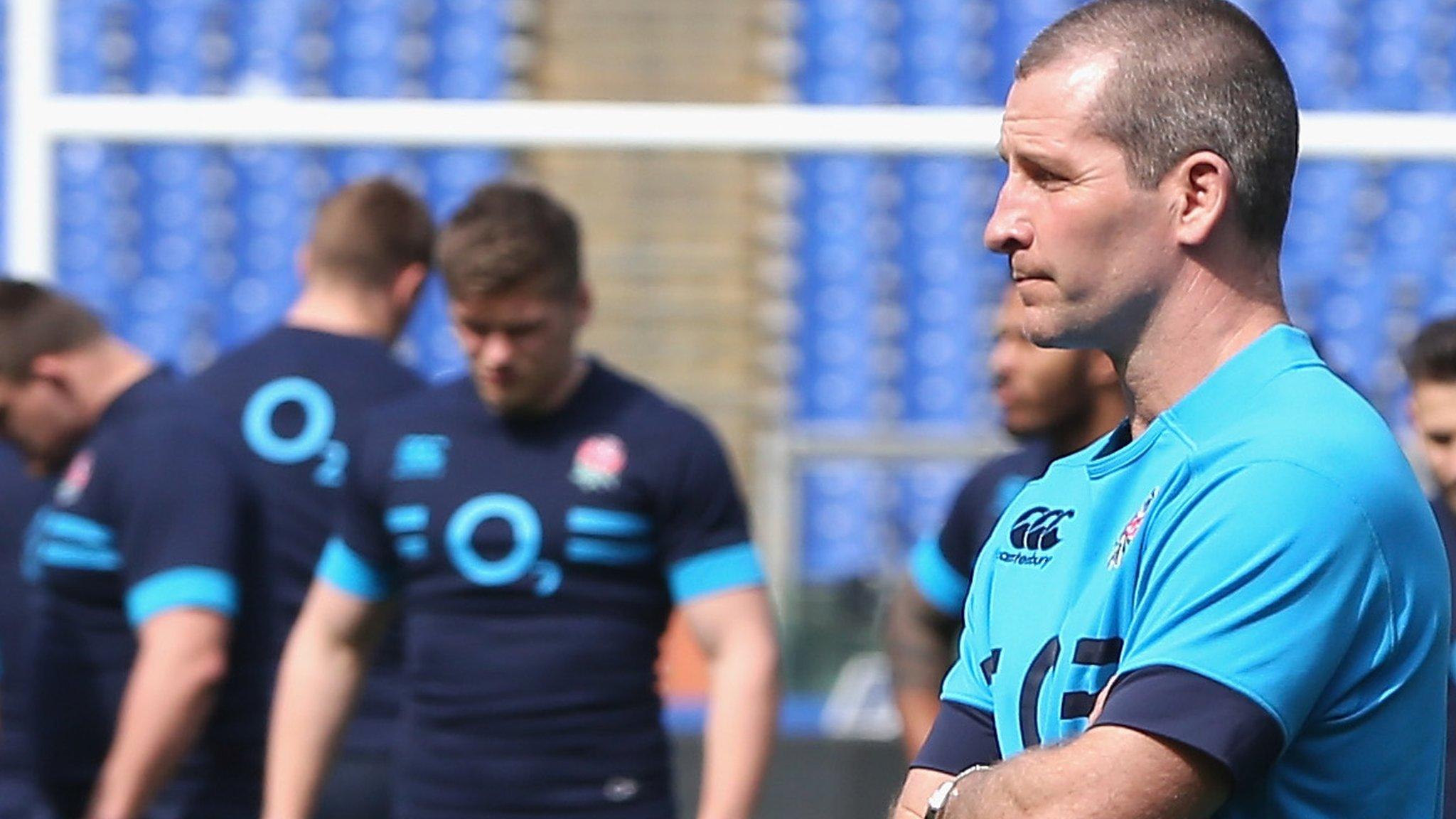Rugby Players' Association: Season structure must change
- Published

Stuart Lancaster's England squad is without at least 10 players
Rugby union's season structure must change for the sake of player welfare, Rugby Players' Association (RPA) chief executive Damian Hopley has said.
England are missing at least 10 players through injury for the November Tests, while Wales also have absentees.
Hopley believes longer rest periods could help reduce the number of injuries in the game.
"The sooner we can address some of these issues the better," the former England back told BBC Radio 5 live.
"We have seen a greater volume [of injuries] this year. Looking at the schedule over the last two seasons - with the Lions tour in 2013 and the New Zealand tour in 2014 - there is always an accumulation effect."

Christian Day was appointed chairman of the RPA this week
The newly-appointed chairman of the RPA, Northampton lock Christian Day, agrees that the current schedule is asking a lot of players.
"I would certainly say we are testing the limits on what is attainable," Day told BBC Radio 5 live. "There has to come a breaking point, and I hope before we come to that breaking point we have a serious look at the length of time a player gets to rest each season."
Hopley believes the international window in June - when the northern hemisphere teams visit the south - is not sustainable, with players touring after a gruelling domestic campaign.
"Getting everyone to leave self-interest at the door is the hardest issue," he said. "Ultimately broadcasters will have a big say but if you get the playing structure right, the commercial issues will follow.
"Rugby has not traditionally been very good at joined-up thinking, but I don't think it's beyond the wit of man to do this."
Bath owner Bruce Craig has long been an advocate of a global calendar, and Hopley agrees that a cohesive approach to scheduling the season between the two hemispheres will bring benefits in the long-term.
"You have to get people in the room who are committed to trying to find a solution," he added. "Whether that is starting the season later, looking at that June window and moving it into October... these are some of many ideas flying around."

The 2015 World Cup has delayed the start of next year's Aviva Premiership season
The 2015-2016 Premiership season will start in October because the World Cup is being held in England, and Hopley said this could show the positives of a longer break.
"It's going to be very interesting to see how it affects them physically and mentally to be completely refreshed, rather than patching themselves up to get through the next campaign," he added.
The international schedule is locked in until 2019, with the World Cup in Japan taking place at the end of that year, but Hopley remains hopeful.
"We've got a good opportunity now to come up with something that can be future-proofed to 2023 Rugby World Cup, and beyond," he said.
"Rugby is moving in the right direction. I just hope we can look at the player welfare issue as the most important piece of it and not just try and hammer out more games."
- Published27 October 2014

- Published26 October 2014

- Published18 September 2014

- Published26 August 2014

- Published14 September 2016

- Published15 February 2019
